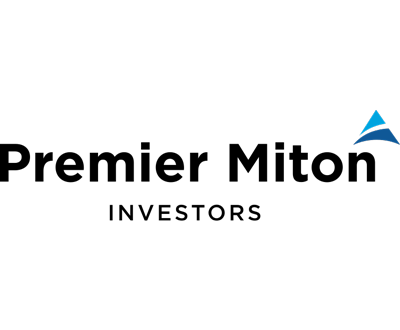Miton UK MicroCap Trust plc (LON:MINI) Fund Manager Gervais Williams caught up with DirectorsTalk for an exclusive interview to discuss what sectors have been impacted by the war in Ukraine, accelerating energy transition and securing supply of critical resources, and hidden gems in these sectors that investors may have overlooked.
Q1: The Ukrainian war has clearly sent shockwave through the markets, what are some of the sectors that have been affected?
A1: I think most particularly what’s been interesting is that even after the pandemic, there’ve been quite a lot of stimulus and the global economy is already becoming inflationary. I think what’s happened with the Ukrainian war is that it’s made these global inflationary worries somewhat worse.
Firstly, what we’ve seen is quite a lot of governments reinvigorating defence expenditure, Germany famously increased its expenditure from 2021 from €47 billion to a €100 billion, Sweden’s increasing its expenditure as well by 2025 as well as Denmark.
The second feature is we’ve seen quite a short fall into certain commodity stocks, things like food crops, there’s a real worry over grain and vegetable oils.
Thirdly, I think it’s introduced concept of precipice risk. What I mean by that is businesses suddenly find their corporate suppliers are sanctioned or an asset they hold is virtually valueless. This is particularly relevant for the mining and energy sectors.
So, I guess the sectors which are most affected in my view are the defence and aerospace sectors, the commodity sectors, food stuffs, mining and energy.
Q2: Has this conflict then been another massive wake up call to accelerate energy transition and the importance of securing supply of critical resources and technology?
A2: Yes, I think even prior to the Ukrainian war, again, the pandemic already led to certain bottleneck and problematic global transport and that led to real worries over the defence supplies of particularly essentials.
I think what’s happened with the conflict is the political emphasis now on security of supply, commodity products are somewhat price elastic and then if you do get shortage of commodity products, you should get the prices going really very steeply up. We’ve seen the food stuffs going up, various metal prices, energy prices.
Even before the conflict, we had actual shortage of natural gas in the European area. This conflict led much greater in interest in not just suppliers of energy transition beyond carbon, but also find finding ways of reducing energy demand or the need of managing energy demands so that we match our demand with our current supply.
Q3: I know you’ve got a keen eye, what are some of the hidden gems that investors might not necessarily think of in some of these impacted sectors?
A3: I think when you think of defence, you think of big companies like British Aerospace but of course there are some small, quoted companies in the Miton UK MicroCap Trust for example. Some of our larger holdings include companies like Pennant International Group plc (LON:PEN), they help train particularly for emulation and maintenance staff in the defence industry. It’s a small business doing about £15/20 million of turnover but most particularly, one assumes that the prospects for that kind of business probably are going to be good going forward.
In terms of agriculture, we have a holding, for example, in something called Dekel Agri-Vision plc (LON:DKL). It operates in the Cote D’Ivoire but it most particularly processes palm oil, it’s a palm oil supplier, crushes the palm kernels and is actually bringing some cashew nuts into processing as well. So again, we see that there’s been a real shortage of vegetable oils after the conflict, particularly because the Black Sea region is a big producer of vegetable oils.
In terms of energy transition, perhaps another example might be CyanConnode. It’s a world leader in what’s called narrowband RF Nesh networks. What does that really mean? It means that you can link a lot of customers and their supplies of energy to a central unit which then monitors this and it particularly helps reduce wasteful energy use and ultimately thereby helps to bring things in balance. They’ve got some major projects coming out in India but they’re also moving out in other countries around the world.
So, it’s very interesting because we’ve got plenty of these kinds of holdings which are probably remaining overlooked despite, of course, the very changing prospects for the world economy. Hopefully these types of companies will see an opportunity to improve trading going forward.
Miton UK MicroCap Trust plc intends to invest primarily in the smallest companies, measured by their market capitalisation, quoted or traded on an exchange in the United Kingdom at the time of investment.



